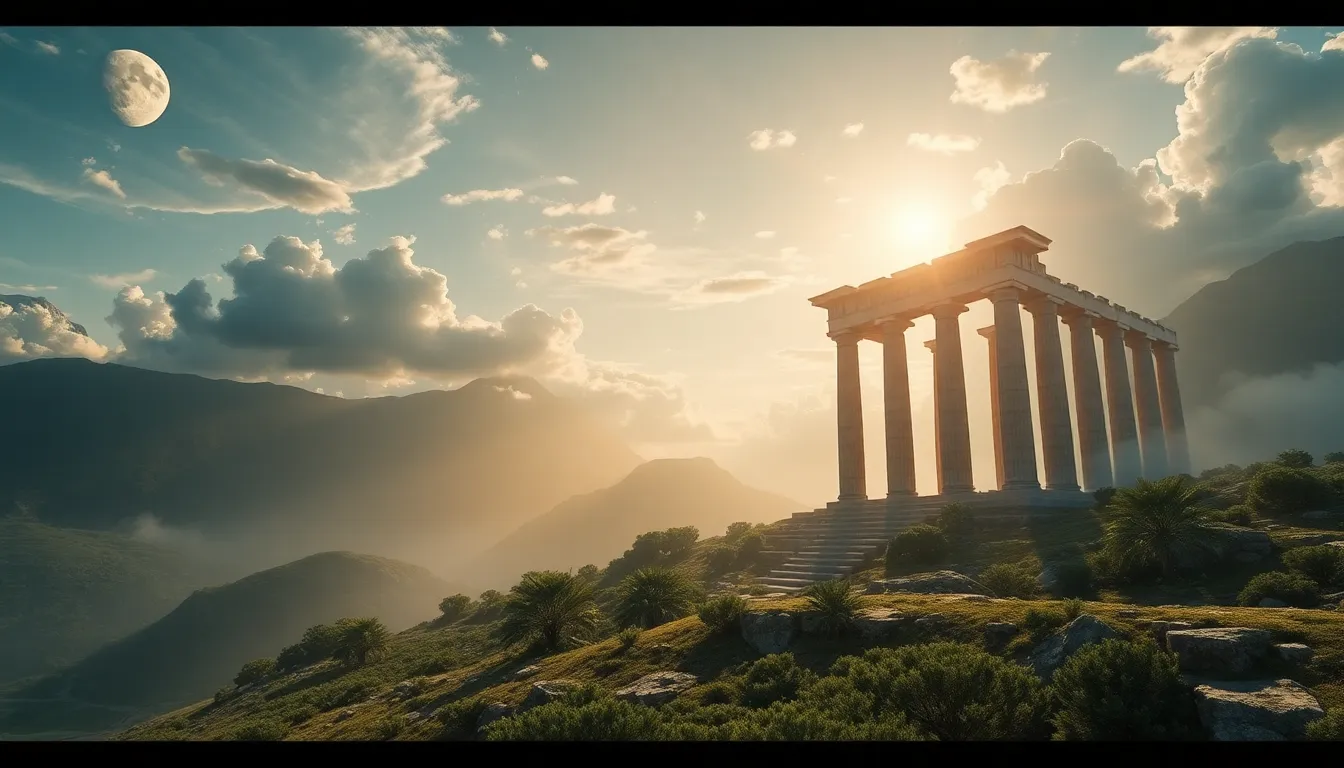Elysium: The Final Destination for the Worthy
I. Introduction
Elysium, often referred to as the Elysian Fields, holds a special place in ancient Greek mythology as a paradisiacal realm reserved for the virtuous and heroic. It serves as the final resting place for those deemed worthy, a stark contrast to the gloomy underworld of Hades. In this article, we will explore the significance of Elysium, its historical context, characteristics, and its impact on modern culture.
II. Historical Context of Elysium
A. Origins in Greek mythology
The concept of Elysium is deeply rooted in Greek mythology. It is described as a place of perfect happiness, where the souls of the righteous dwell after death.
- The role of Elysium in the afterlife: Unlike Hades, which is the general abode of the dead, Elysium specifically accommodates those who led virtuous lives. It is a reward for the just and the heroic.
- Distinction from Hades and other realms: Hades is known for its dreary existence, while Elysium represents bliss and eternal peace. The two realms are often depicted as separate domains in the afterlife.
B. Evolution of the concept through literature and art
The idea of Elysium has evolved through various works of literature and art over the centuries.
- References in Homer’s works: Homer’s “Iliad” and “Odyssey” provide some of the earliest mentions of Elysium, depicting it as a desirable place for heroes.
- Elysium in Roman culture: The Romans adopted the concept of Elysium, referring to it as “Elysian Fields” and incorporating it into their own mythological narratives.
III. Characteristics of Elysium
A. Description of the landscape and environment
Elysium is often described in vivid detail, emphasizing its beauty and serenity.
- Fields of bliss and eternal spring: The landscape is characterized by lush meadows, blooming flowers, and a perpetual sense of spring, symbolizing eternal happiness.
- Depictions of beauty and peace: Artists and poets have long portrayed Elysium as a tranquil paradise, filled with soft breezes and gentle sunlight.
B. The inhabitants of Elysium
Not everyone qualifies for Elysium; it is a realm for the especially virtuous.
- Who qualifies as ‘worthy’? Those who have led lives of honor, valor, and righteousness are granted access to Elysium.
- The heroes and demigods of Elysium: Legendary figures such as Achilles, Odysseus, and other heroes from Greek mythology are often depicted as residents of this paradise.
IV. Elysium in Modern Culture
A. Interpretations in contemporary literature and film
The concept of Elysium continues to resonate in modern storytelling.
- Notable works that draw on the concept: Various authors and filmmakers have included Elysium as a theme in their narratives, exploring its implications.
- Symbolism and themes associated with Elysium: Elysium is often used as a metaphor for hope, redemption, and the ultimate reward for a life well-lived.
B. Elysium in popular video games and virtual realities
In the realm of video games, Elysium has inspired many virtual worlds.
- Games like “Hades” incorporate Elysium as a level or realm, allowing players to explore its beauty and engage with its mythological context.
- The imagery and themes of Elysium are often used to enhance the player’s experience in quests for virtue and heroism.
V. Philosophical Implications of Elysium
A. The ethical considerations of worthiness and virtue
The concept of Elysium raises important ethical questions about what it means to be ‘worthy’ and how virtue is defined.
B. Comparisons to other afterlife concepts across cultures
When examining Elysium, it is essential to compare it with other cultural interpretations of the afterlife.
- Heaven: Similar to Elysium, many cultures have a concept of heaven as a place for the virtuous.
- Nirvana: In Buddhism, Nirvana represents the ultimate state of liberation and bliss, akin to the peace of Elysium.
- Valhalla: In Norse mythology, Valhalla is a majestic hall where warriors go after death, offering a different yet comparable view of an afterlife for the worthy.
These comparisons highlight humanity’s universal quest for moral living and the hope for an idyllic afterlife.
VI. Elysium as a Metaphor
A. Elysium as a representation of human aspirations
Elysium transcends its mythological roots to symbolize the aspirations of humanity.
B. The pursuit of personal ‘Elysium’ in life
Individuals often strive for their own version of Elysium throughout their lives.
- Happiness, fulfillment, and legacy: People seek joy and a sense of purpose, aiming to leave a lasting impact on the world.
- The role of self-actualization in achieving one’s Elysium: The journey of personal growth and self-discovery is essential for realizing one’s own Elysium.
VII. Critiques and Controversies Surrounding Elysium
A. Debates on elitism in the concept of worthiness
The idea of Elysium raises debates about elitism and the criteria for worthiness.
B. Modern interpretations that challenge traditional views
Contemporary thinkers have begun to challenge the exclusivity of Elysium.
- Inclusive vs. exclusive ideas of the afterlife: Some argue for a more inclusive concept of the afterlife, where everyone has a place, regardless of their earthly deeds.
- The relevance of Elysium in a pluralistic society: In today’s diverse world, the traditional notion of Elysium may not resonate with everyone, prompting new interpretations and adaptations.
VIII. Conclusion
In summary, Elysium stands as a powerful symbol in Greek mythology, embodying the ideals of virtue, heroism, and the quest for eternal bliss. Its rich historical context, beautiful characteristics, and philosophical implications continue to influence modern culture, literature, and our understanding of the afterlife. As we explore the concept of Elysium, we are reminded of our aspirations for happiness, fulfillment, and the legacy we wish to leave behind.




